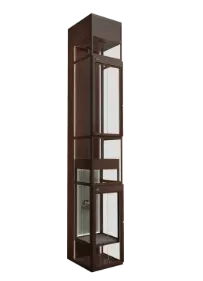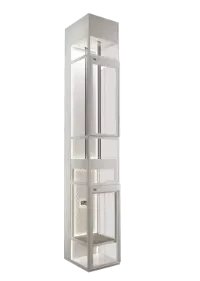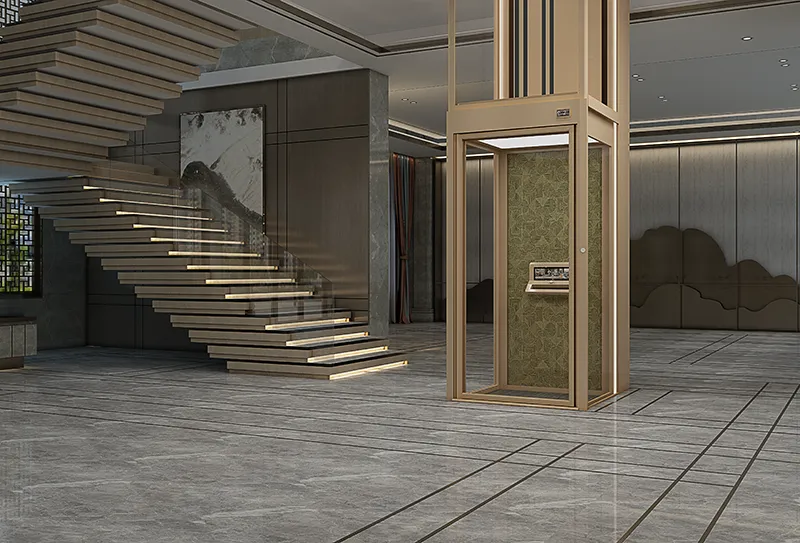Shaftless elevator for home, as a groundbreaking vertical mobility solution, is redefining residential accessibility globally. By eliminating traditional shaft structures, this innovation not only simplifies installation but also offers unprecedented flexibility for historic renovations and compact dwellings, emerging as a key technology in aging societies and green building trends.
Technological Innovation and Core Advantages
The competitiveness of shaftless elevator for home lies in structural simplification and environmental adaptability. Hangzhou Shunda Bonait’s patented "rope head mounting seat" embeds rails directly into walls, reducing installation space by 40% compared to traditional elevators, ideal for retrofitting homes with ≤3.5m floor heights3. CIBES’ screw-drive technology (Sweden) achieves 0.15m/s smooth operation via self-locking nuts and screw rods, supporting 400kg loads without hydraulic oil or cable maintenance, cutting lifecycle costs by 25%.
Smart upgrades enhance competitiveness. IoT-enabled models monitor real-time status via apps with 98% fault prediction accuracy. Thyssenkrupp’s MicroLift series uses AI to optimize floor prioritization, reducing wait times by 30%.

Global Market Dynamics
Regional demands vary sharply:
European Heritage Compliance: EU guidelines drove orders growth, with French châteaux integrating faux-stone rails into 16th-century walls.
North American Aging Demands: 18% annual growth in the U.S., with seismic locks mandated in California ($45,000/unit).
Asia-Pacific Urban Density: China’s retrofit policies spurred 23% order growth (2023), while Tokyo’s micro-homes adopted foldable designs (0.8㎡ footprint).
Design Challenges and Solutions
Shaftless design balances safety and aesthetics:
Structural Stability: Rails withstand dynamic loads and wind pressure (DIN EN 81-41 requires lateral force resistance ≥1.5kN), using high-strength alloys with ±2mm displacement control.
Visual Harmony: Spanish manufacturers developed invisible rails with stone-textured coatings (90% visual match).
Emergency Protocols: BS 5900 mandates backup power and manual descent systems for power outages.

Green Transition and Future Trends
Carbon neutrality drives advancements:
Material Revolution: Carbon fiber rails cut weight by 50% and installation emissions by 40%; bio-based lubricants (e.g., soybean derivatives) replace mineral oils.
Energy Regeneration: Kinetic-to-electric systems generate 2,200kWh annually, covering 70% energy needs.
Smart Integration: Synced with solar panels, daytime solar priority reduces grid reliance by 35%.
Future innovations focus on:
Magnetic Levitation: Thyssen tests contactless drives (<30dB noise, 50% energy reduction);
Modular Customization: Italy’s ElevArch offers "plug-and-play" kits for cabin decor and functional upgrades.

As technology merges with living aesthetics, shaftless elevator for home evolves from transport tools into spatial art, embodying humanity’s pursuit of barrier-free living.





